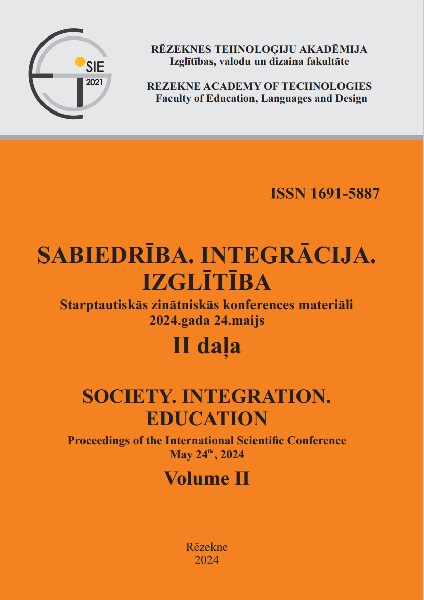PUBLIC EVENTS AS A MEAN OF DESTINATION PROMOTION
DOI:
https://doi.org/10.17770/sie2024vol2.7917Keywords:
destination management, public communication, public eventsAbstract
Tourism is often considered as a strategic economic development priority not only in areas with high numbers of domestic and international visitors but also in more remote and rural areas. Their ability to attract visitors is often limited by the number and the range of available infrastructure and other tangible and intangible resources. Even defined as development priority, tourism promotion is often underfinanced due to municipality budget priorities and often short-term focus whereas tourism promotion requires long term approaches. Less developed areas are also lacking overall understanding of various tourism impact forms and public officers face challenges communicating tourism marketing spendings to the public. These trends fit under the category of public events as a means of tourism promotion. Two cities qualifying as regional tourism destinations have prioritised public events as tourism promotion priorities. The aim of the research is to explore perception of public events as tourism destination promotion tools in regional tourism destinations. Research is a case study of public events as a means of tourism destination promotion in Bauska and Talsi city. Primary data has been obtained via semi-structured interviews with involved stakeholders representing public and private sector to develop practically applicable recommendations to other tourism destinations.
References
Abel, M., & Berntsen, D. (2021). How do we remember public events? Pioneering a new area of everyday memory research. Cognition, 214, 104745.
Backman, K. F. (2018). Event management research: The focus today and in the future. Tourism Management Perspectives, 25, 169-171. DOI: 10.1016/j.tmp.2017.12.004
Bolton, M. (2023). City, Cult, and Company: The Skinners' Procession and Corpus Christi Celebrations in Later Medieval London. London Journal.
Cherry, B. (2013). London’s Public Events and Ceremonies: An Overview Through Three Centuries. Architectural History, 56, 1–28. DOI10.1017/S0066622X00002434
Everts, B. (2016). World's Fairs: A Global History of Exhibitions. Reference Reviews, 30(7), 45-47.
Gehl J. et.all. (2018). Pilsētas cilvēkiem. Rīga: Jāņa Rozes apgāds.
Janssen, S. M. J. (2015). Is There a Cultural Life Script for Public Events? Applied Cognitive Psychology, 29(1), 61-68. DOI: 10.1002/acp.3022
Lingeberzins, E., & Jenzis, J (2022). The role of catering segment for gastronomy tourism development. Proceedings of the 2022 International Conference “Economic Science for Rural Development”, No 56 Jelgava, LLU ESAF, 11-13 May 2022, 507-516 DOI: 10.22616/ESRD.2022.56.050 507
Mugnaini, F. (2006). Medieval ever since, medieval forever: a survey on the return of the past in present day urban festivals in Italy (and elsewhere). Past in the present: a multidisciplinary approach.-(Studi; 2), 1000-1024.
Salmin, L. (2020). The City's Celebration and the City of Celebration. Proekt Bajkal, 17(63), Proekt Bajkal, 2020, Vol.17 (63).
Sotiriadis, M. D. (2015). Culinary tourism assets and events: suggesting a strategic planning tool. International Journal of Contemporary Hospitality Management, 27(6), 1214-1232.
Swift, A. (2017). Review of 'World’s Fairs: A Global History of Exhibitions' Reviews in History, Reviews in history, 2017.
Velikova, E (2016). The influence of the events in tourism. University of National and World Economy.
Witzel, M. (2012). A history of Management Thought. New York: Routledge.
Zeids, T. (1978). Feodālā Rīga. Latvijas PSR Zinātņu akadēmija. Vēstures institūts. Rīga: Zinātne.
Zlatanov, S. (2015). The role of events in tourism development. Bizinfo Blace 6(2),83-97. DOI:10.5937/BIZINFO1502083O






